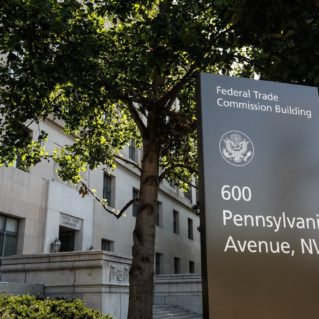The recent Federal Trade Commission (FTC) announcement against AdvoCare left some wondering if the agency may have moved the goalpost in terms of what they now deem is behavior that can be investigated.
For some, the FTC’s actions appeared to be government overreach. Others saw the announcement as an immediate need for understanding the FTC’s interpretation of the law and vision of best practices in the direct selling channel.
The need for clarity stems from the fact that federal agencies such as the FTC routinely write official guidance to explain how federal statutes and regulations are interpreted and enforced, yet in most cases the guidance is not made available to the public. In addition, while the guidance is not legally binding, agencies often threaten enforcement actions based on views expressed solely in guidance. Agencies use guidance hidden from the public to threaten individuals and businesses into abiding by agency views in order to avoid fines or jail time.
That will change now that President Donald Trump has introduced two new executive orders designed to “improve the transparency and fairness of government agencies and ensure that they are held accountable.”
The “Improved Agency Guidance” Executive Order requires agencies to put their guidance documents on easily searchable websites, so individuals are able to access them. To ensure Americans have their voices heard, the Order will also require government agencies to seek public input on the most important guidance they issue. Americans will be able to ask agencies to withdraw guidance they believe is wrong.
The “Transparency and Fairness” Executive Order prohibits agencies from enforcing rules they have not made publicly known in advance. The order also instructs agencies to offer opinion letters to individuals and businesses who request them, so people who want to comply with the law can learn how.
The executive orders will make all agency guidance available to the public before agencies can enforce it. This will allow small businesses and individuals to respond to the guidance before the federal government imposes fines or punishments on them.
Trump’s executive orders will restrict agencies’ use of guidance in several important ways:
- Agencies have 120 days to inventory their existing guidance and decide what to defend keeping.
- Every guidance with penalties must identify the particular statute or regulation that authorizes it.
- All enforcement standards have to be articulated in advance, not invented on the fly.
- Administrative inspection authority has to be spelled out in advance, so searches adhere to law.
- The orders help solve the problem of guidance evading judicial review when it’s not final agency action.
- Before any adverse legal consequences may start, an agency has to notify targets of the charges against them, give them a chance to respond and then reply to that response in writing.
- Agencies must put processes in place that permit people to petition them to revoke certain guidances.
“Guidance does not create new duties or obligations, but it does clarify regulatory interpretations and signal enforcement interpretations; as a result, it not only advances public protections, [but] it creates certainty and clarity for regulated businesses,” said Amit Narang, Public Citizen regulatory policy advocate.”


